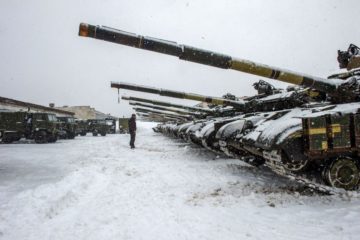Matthew Nimetz in Quillette:
 So much is being written about the Russian invasion of Ukraine that more on the situation on the ground is unnecessary. Certainly, it is premature for a post-mortem on causes and responsibilities of a conflict that came on so quickly and unexpectedly. But it is not a bad time to think about medium- and long-term consequences of Putin’s dramatic action, and how the West can recover its equilibrium and face up to a new global challenge.
So much is being written about the Russian invasion of Ukraine that more on the situation on the ground is unnecessary. Certainly, it is premature for a post-mortem on causes and responsibilities of a conflict that came on so quickly and unexpectedly. But it is not a bad time to think about medium- and long-term consequences of Putin’s dramatic action, and how the West can recover its equilibrium and face up to a new global challenge.
Historians like to argue about whether history is caused primarily by underlying objective forces or by the will of powerful individuals. The Ukrainian case presents that very question. How we in the West answer will influence how we move forward. In this case, some basic forces that have always existed in the central European arena made this confrontation inevitable, as many predicted at the time of the disintegration of the Soviet Union and the expansion of Western influence, and NATO, into the region. But the differences between Moscow and the West over security in central Europe need not have developed into the violent manifestation it has taken, if not for the actions and psyches of key actors.
More here.
